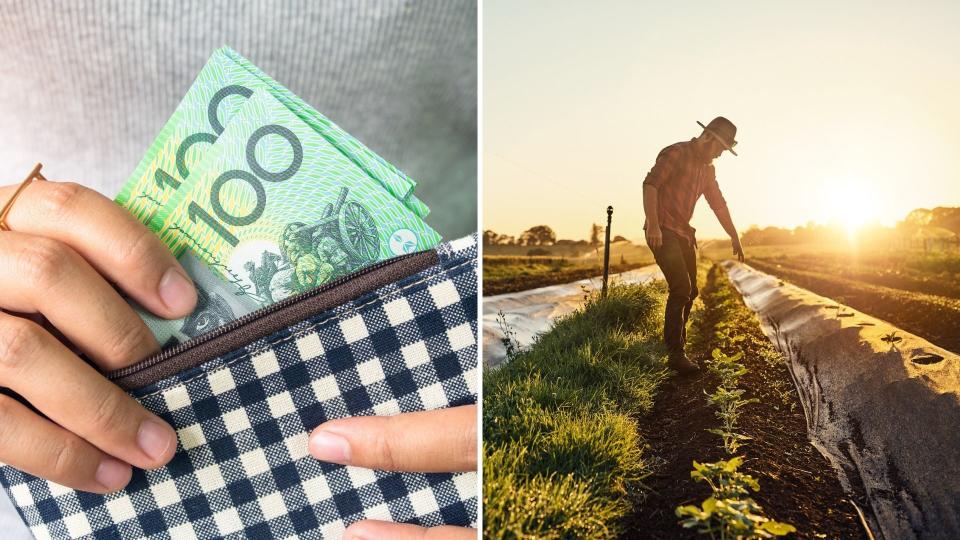Aussies to work and earn JobSeeker under new plan

Australians receiving JobSeeker payments would be able to also earn an income working on farms under a new recommendation designed to stem the shortage of agricultural workers.
The number of people on the Working Holiday Maker visa has fallen from 140,000 to 73,500 since Australia closed its borders in March, raising challenges for the agriculture sector which relies on backpackers to harvest crops.
An interim report from the parliamentary inquiry into the Working Holiday Maker program recommended that for the next 12 months, Australians on JobSeeker can retain the payments while taking on low paid agricultural and horticultural work, with the Government also providing a one-off payment to help workers relocating for these jobs with travel and accommodation costs.
Currently, Australians receiving unemployment benefits see those payments taper once they begin to earn beyond a certain threshold.
In its submission, the Australian Fresh Produce Alliance said the continuation of JobKeeper and JobSeeker acts as a “really practical challenge”, questioning why Australians would move to another location to work on a farm, with the National Farmers’ Federation (NFF) also raising the question.
“While farm wages are as good as any other sector—ABS data indicates that as much as $1,000 a week can be earned in entry-level positions—displaced workers with established careers in other fields may find entry-level salaries unattractive,” the NFF said in its submission.
“While farms are prepared to absorb the hit to productivity, one might wonder whether displaced workers will tolerate a drop in their incomes, especially when they can receive generous JobSeeker and JobKeeper payments.”
AUSVEG echoed the statement, saying there’s only about a $250 difference after tax between a horticultural award worker and someone receiving JobSeeker.
“Even recently, when JobSeeker payments were raised, many growers have reported that they've had workers collect their final pay cheques and leave because they'd rather go home and receive the JobSeeker payment than work on the farm.”
‘Gap year at home’ and HECS/HELP discounts on the cards
The inquiry also suggested the Government “urgently develop” a ‘Have a Gap Year at Home’ campaign targeting young Australians including school leavers and university graduates.
“The campaign should appeal to young Australians’ patriotism and their sense of adventure, enabling them to see their own country and earn money, appeal to young people who had planned to take a year off to travel and work overseas [and] provide young people with work and work experience opportunities at a time when there are fewer casual jobs available to young people,” the report read.
Additionally, the Government should consider discounting HECS/HELP loans for young Australians who take on the work.
“There's not going to be a lot of international travel over the next 12 months, I wouldn't have thought,” the National Farmers' Federation (NFF) spokesman Ben Rogers told the inquiry.
“Certainly [regarding] the gap year, uni students aren't going to be able to go to Europe and South-East Asia the way they would have in previous years. Getting them to do a bit of adventure tourism within their own nation and go and experience rural life, we think is a positive.”
The Northern Territory government also raised the idea, with its spokesperson saying that if they had two resumes in front of them with only one having done work experience in an outback area, they’d be more impressed by the latter for their “get-up-and-go”.
“A Gap Year at Home scheme not only provides the chance to fill labour shortages but gives young people a greater sense of their own country, the chance to meet Australians from other parts of the country and the opportunity to learn more about industries which are vital to our national prosperity,” the interim report read.
Want to take control of your finances and your future? Join the Women’s Money Movement on LinkedIn and follow Yahoo Finance Australia on Facebook, Twitter and Instagram.

 Yahoo Finance
Yahoo Finance 

